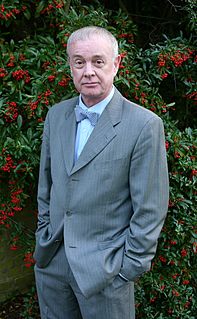A Quote by Plato
The form of law which I propose would be as follows: In a state which is desirous of being saved from the greatest of all plagues-not faction, but rather distraction-there should exist among the citizens neither extreme poverty nor, again, excessive wealth, for both are productive of great evil . . . Now the legislator should determine what is to be the limit of poverty or of wealth.
Related Quotes
If exclusive privileges were not granted, and if the financial system would not tend to concentrate wealth, there would be few great fortunes and no quick wealth. When the means of growing rich is divided between a greater number of citizens, wealth will also be more evenly distributed; extreme poverty and extreme wealth would be also rare.
It is this idea 'decency' should be attached to wealth -and 'indecency'' to poverty - that forms the core of one strand of skeptical complaint against the modern status-ideal. Why should failure to make money be taken as a sign of an unconditionally flawed human being rather than of a fiasco in one particular area if the far larger, more multifaceted, project of leading a good life? Why should both wealth and poverty be read as the predominant guides to an individual's morals ?
One would have thought that it was even more necessary to limit population than property; and that the limit should be fixed by calculating the chances of mortality in the children, and of sterility in married persons. The neglect of this subject, which in existing states is so common, is a never-failing cause of poverty among the citizens; and poverty is the parent of revolution and crime.
It is true that so far as wealth gives time for ideal ends and exercise to ideal energies, wealth is better than poverty and ought to be chosen. But wealth does this in only a portion of the actual cases. Elsewhere the desire to gain wealth and the fear to lose it are our chief breeders of cowardice and propagators of corruption. There must be thousands of conjunctures in which a wealth-bound man must be a slave, whilst a man for whom poverty has no terrors becomes a freeman.
At the beginning of this marvelous era it was natural to expect, and it was expected, that laborsaving inventions would lighten the toil and improve the condition of the laborer; that the enormous increase in the power of producing wealth would make real poverty a thing of the past... From Progress and Poverty, To those who, seeing the vice and misery that spring from the unequal distribution of wealth and privilege, feel the possibility of a higher social state and would strive for its attainment.


































